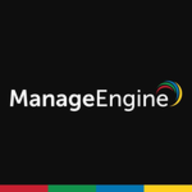


GitGuardian Public Monitoring and ManageEngine DataSecurity compete in enterprise security solutions. ManageEngine appears superior due to a more comprehensive suite and perceived value, despite GitGuardian's pricing advantage.
Features: GitGuardian focuses on real-time monitoring for detecting sensitive data in public repositories, automated alerts, and risk assessment tools. ManageEngine offers extensive data encryption, auditing, and reporting capabilities, addressing a wide range of security needs and enhancing comprehensive data governance.
Ease of Deployment and Customer Service: GitGuardian uses cloud-based deployment for quick setup and minimal resources. ManageEngine, with a more detailed deployment process, provides robust customer support and documentation, facilitating adaptable on-premise or cloud solutions.
Pricing and ROI: GitGuardian presents cost-effective pricing with transparent tiers, leading to significant savings. ManageEngine involves a higher initial investment but delivers considerable ROI with extensive security management features, appealing to larger organizations with broader security infrastructure needs.


Cloudflare is a highly-regarded Content Delivery Network (CDN) and a Distributed Denial-of-Service (DDoS) protection solution. The robust global connectivity cloud platform that is Cloudflare ensures users are able to connect to the Internet quickly, securely, and reliably. Cloudflare is one of the world's largest networks in the marketplace today. Using Cloudflare, businesses, educational entities, NGOs, vloggers, bloggers, and anyone else with an internet presence can experience more secure, faster websites and applications.
Currently, there are millions of Internet locations on Cloudflare, and the Cloudflare network
continues to grow every day by the thousands. The solution is able to fulfill the requests for
millions of websites seamlessly and serves on average 45 million HTTP requests per second.
Cloudflare has safe, secure data centers in close to 300 cities worldwide to ensure every
client request is filled as quickly as possible. It is Cloudflare’s edge network that makes this
possible by keeping content and other services as close to each client as possible, so the
information requests are always only seconds away.
Many organizations that work in democracy, civil society, human rights, or the arts are able to
access Cloudflare's highest levels of protection for free via Project Galileo. Additionally, official
election websites can be secured from hacking and fraud through Cloudflare’s Project
Athenian, also at no additional cost.
Cloudflare can also help organizations of all sizes develop a robust zero-trust strategy to
ensure the highest levels of productivity and profitability. Employees, stakeholders, and end users have a greater level of satisfaction and overall improved user experience, which can, in
turn, result in higher revenues and overall ROI. Zero-trust and BYOD (bring your own device)
access ensure end users and employees always have the best resources and technology
available to them at all times.
Cloudflare benefits
Cloudflare has many benefits. Some of its most valuable benefits include:
- Faster load times
- Robust DNS security
- Intuitive cloud Web Application Firewall (WAF)
- Free universal SSL
- Image enhancement
- Automatic browser caching
- Next-generation cloud load balancer
- Accelerated Mobile Pages (AMP)
- Rate limiting
- Minification
- Zero-trust capabilities
- Cost-effective
- Reduced carbon footprint
Reviews from real users
“Many websites require an SSL certificate because they sell stuff and want SSL. Cloudflare
comes with an SSL certificate built in. It's automatic. You sign yourself up for Cloudflare, and
an SSL certificate automatically protects your website. If you have a connection between your
website and your host, the server, Cloudflare, and the host, you don't necessarily need a
certificate.” Spencer M., Owner at Tech Exchange
“What I like best about Cloudflare is that my company can use it to trace and manage
applications and monitor traffic. The solution tells you if there's a spike in traffic. Cloudflare
also sends you a link to check your equipment and deployment and track it through peering,
so it's a valuable tool.” Daniel P., Network Engineer at Ufinet
“The most valuable feature of Cloudflare is the GUI. You are able to control the solution very
well through the interface. There is a lot of functionality that is embedded in the service.” PeerSpot user, Competence Center Manager at a tech services company
GitGuardian Public Monitoring allows real-time GitHub scanning and alerting to uncover sensitive company information hiding in online repositories. It monitors both organization repositories and developers' personal repositories. The solution gives visibility to developers and security teams on this very critical blindspot that are the organization developers' personal repositories on GitHub (80% of leaked corporate secrets on public GitHub come from developers’ personal repositories).
GitGuardian Public Monitoring is particularly interesting for companies with large development teams (above 200 developers) and modern development practices.
GitGuardian Public Monitoring cover 350+ API providers, database connection strings, private keys, certificates, usernames and passwords and intellectual property. It uses sophisticated pattern matching techniques to detect credentials that cannot be strictly defined with a distinctive pattern (like unprefixed credentials). The algorithm has a high precision (91% “true positive” feedback following our alerts, as reported by our users.)
The alerting is done in real-time (a few seconds after the secret was publicly exposed) which allows fast remediation involving in a collaborative way developers, security teams and operations.
GitGuardian Public Monitoring also allows red teams and pentesters to proactively look for sensitive information by performing complex queries on 12 billion documents and metadata from more than 3 years of GitHub history.
GitGuardian Public Monitoring scans public GitHub activity in real-time, helping organizations detect sensitive information leaks in source code repositories. Our solution gives Threat Intelligence and Security teams full visibility over their organization’s public GitHub Attack Surface, by monitoring both organization-owned repositories and developers' personal repositories.
With 80% of secrets and credentials leaks on public GitHub finding their source in developers' personal repositories, GitGuardian for Public Monitoring helps organizations address a critical security blind spot.
With real-time incident notification, Threat Intelligence and Security teams are guaranteed to reach the incident scene before everyone else and take action to mitigate the threat of breaches and intrusions.
We monitor all Data Loss Prevention (DLP) reviews to prevent fraudulent reviews and keep review quality high. We do not post reviews by company employees or direct competitors. We validate each review for authenticity via cross-reference with LinkedIn, and personal follow-up with the reviewer when necessary.